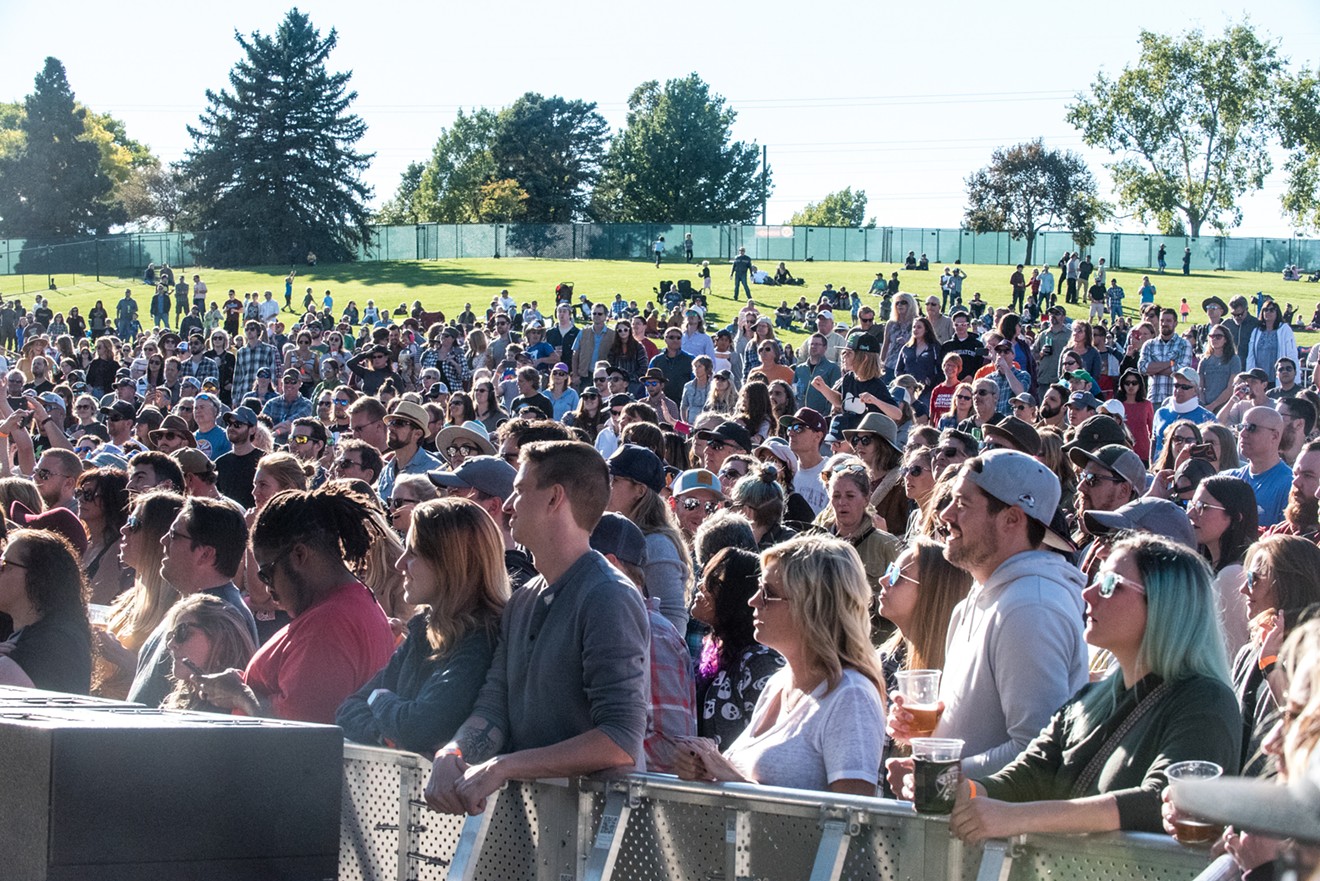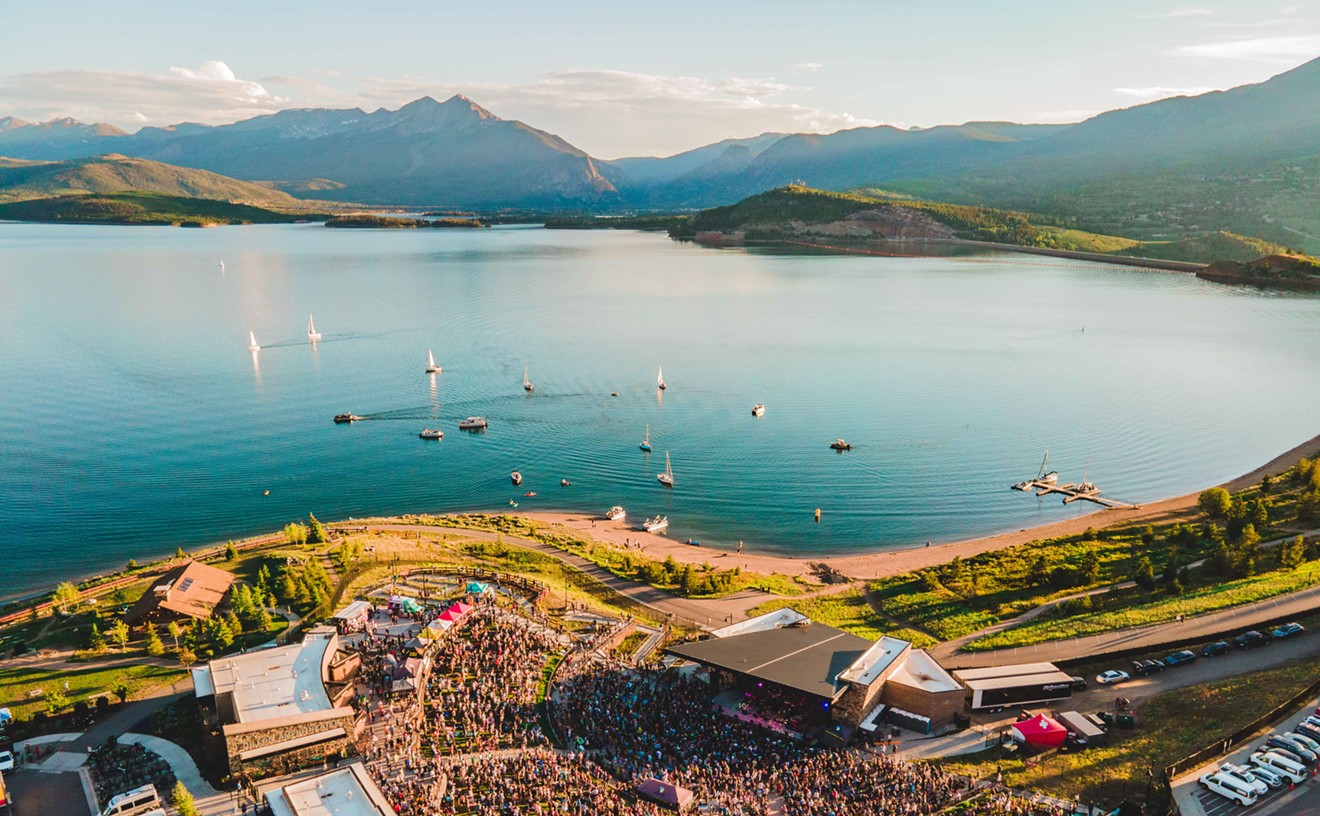On June 12, the owners of Dazzle, Nocturne and Broadway Roxy had a scary afternoon. They were all planning to host weekend concerts, but were forwarded a letter from the Denver City Attorney’s Office stating that live entertainment wouldn’t be allowed in restaurants. This was the opposite of what they had been told when the city had given them the green light to host music earlier this month. By the end of the day Friday, the city to get clarification on the rules from the state, and concerts went on as planned.
Figuring out what's allowed, what's not and when has proven to be challenging, as new rules are in flux.
According to a statement sent to Westword by Lisa Gedgaudas with Denver Arts & Venues, the state recently clarified that live entertainment is allowed, with restrictions: “One: All members of the entertainment group (band, roadies, stage hands) must wear masks at all times. Two: Performers must wear masks at all times, including singers and band members. This means that band members who play a wind instrument are disallowed. This also means that singers must wear a mask when they’re singing. Three: The entertainment must be socially distanced from the audience and singers/musicians/etc. from each other. Four: The entertainment may not touch each other or the audience, and the audience may not touch the performers.”
While restaurants can now host live music, bars and other venues might also be able to under modified conditions by the end of June or early July, Governor Jared Polis said at a June 15 press conference. The state also issued draft guidelines for indoor and outdoor events, which severely limit capacity based on venue size. The state is asking for feedback on these drafts by Wednesday, June 17, at 5 p.m.
In the meantime, Denver is also figuring out city and county rules for rebooting concerts. Gedgaudas and Levitt Pavilion Denver executive director Chris Zacher — who’s serving as the lead for Colorado members of the National Independent Venue Association — have been working with the city's venue owners on protocols for reopening. These include guidelines for social distancing and stage plots and other standards to ensure public health and safety. They plan to take the recommendations to the mayor’s office.
Through surveys, Gedgaudas and Zacher have been learning what the city’s venue owners and promoters are going through right now. Most are losing money every month, and limited capacities will make it even harder for venues to survive. Without 70 to 80 percent capacity, it will be tough to put on concerts.
“It's not worth it,” Gedgaudas says. “The money doesn't translate at that point. Otherwise they're losing more money.
Based on the recent draft issued by the governor’s office, the maximum capacity that Levitt Pavilion could have would be 175.
“Quite honestly, 175 patrons is not a large enough audience for us to produce a show,” Zacher told Westword on Monday afternoon. If the venue can bring in at least 1,500, it will continue to plan to reopen in August; otherwise, it will cancel the rest of its 2020 schedule.
Gedgaudas, in addition to her work with Arts & Venues, also heads up the Denver chapter of Reopen Every Venue Safely, an eleven-city partnership between the Music Policy Forum and Sound Music Cities that is drafting plans and budgets for bringing clubs, bars and venues back.
“All the cities involved in that are working together to maybe come up with sort of similar strategies for reopening,” Gedgaudas says about REVS.
Through NIVA and REVS, Gedgaudas says, everyone is considering public health and safety first.
“Everyone has their eye on the data right now, and the science. That's what's happening. That comes first,” she says.
Venue owners have been telling her: "’We need help. We financial support. We need to be lobbying for federal dollars, and we need to really put ourselves out there and be very loud about that support, because they're being left behind.’”
The big picture for venues, both large and small, is that “they’re losing money," Gedgaudas adds. "We need to pay them as soon as possible. That's really the message. Otherwise we're going to lose our infrastructure.”
As live music does come back, she notes, businesses, customers and musicians will have to collaborate to ensure safety: “Everyone has to be working together in lockstep to make these things possible."
[
{
"name": "Air - MediumRectangle - Inline Content - Mobile Display Size",
"component": "12017618",
"insertPoint": "2",
"requiredCountToDisplay": "2"
},{
"name": "Editor Picks",
"component": "17242653",
"insertPoint": "4",
"requiredCountToDisplay": "1"
},{
"name": "Inline Links",
"component": "18838239",
"insertPoint": "8th",
"startingPoint": 8,
"requiredCountToDisplay": "7",
"maxInsertions": 25
},{
"name": "Air - MediumRectangle - Combo - Inline Content",
"component": "17261320",
"insertPoint": "8th",
"startingPoint": 8,
"requiredCountToDisplay": "7",
"maxInsertions": 25
},{
"name": "Inline Links",
"component": "18838239",
"insertPoint": "8th",
"startingPoint": 12,
"requiredCountToDisplay": "11",
"maxInsertions": 25
},{
"name": "Air - Leaderboard Tower - Combo - Inline Content",
"component": "17261321",
"insertPoint": "8th",
"startingPoint": 12,
"requiredCountToDisplay": "11",
"maxInsertions": 25
}
]












